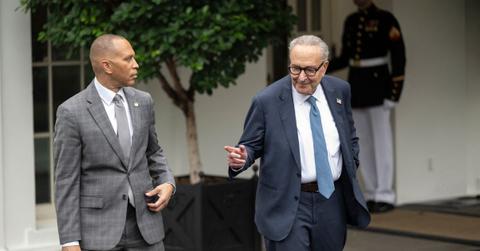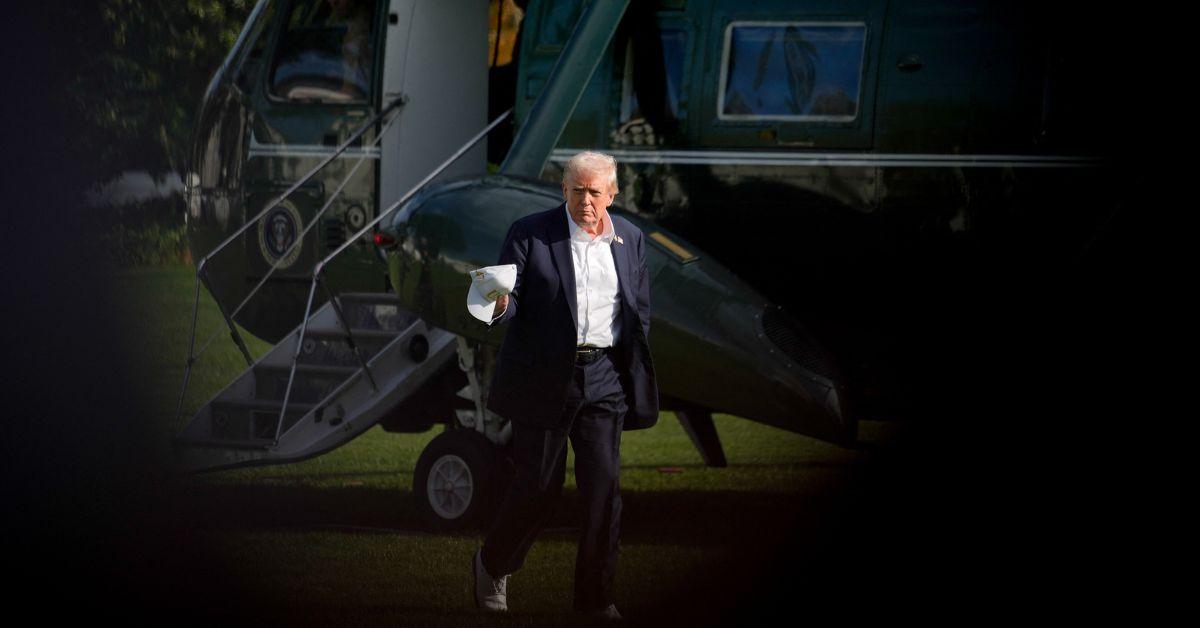A Government Shutdown Might Be Imminent, but What Does That Even Mean?
A government shut down could lead to lots of unpaid federal workers.
Published Sept. 30 2025, 12:02 p.m. ET

Congress has to reach a new deal to fund the government before midnight on Oct. 1, 2025, or the government will shut down. The news that a government shutdown could be imminent has many wondering about what a shutdown would entail and why it seems like it might be such a big deal.
While a shutdown is not guaranteed yet, it's not the first time that the government might grind to a halt. Here's what we know about what happens during a government shutdown.

What happens during a government shutdown?
Most federal agencies are funded by appropriations bills that need to be passed by Congress every year, according to USA Facts. The government shuts down when Congress is not able to pass those bills; then the government must either fully or partially shut down based on which bills have been passed. This time, none of the 12 bills that have to be passed have been, but some agencies received an infusion of funding in Trump's One Big Beautiful Bill, which passed earlier this year.
When a government shutdown occurs, the federal government must stop all non-essential functions until a new funding bill has been passed. Each agency determines what work is essential or not, and functions that involve collecting fees can also continue operating, because they are self-funded. And if a federal employee's pay is dependent on appropriations, they are not going to be paid during the shutdown.
The armed forces are considered essential, as are military hospitals, but services like national parks, air traffic controllers, and airport security could all disappear during this shutdown. Additionally, Office of Management and Budget Director Russ Vought has suggested that agencies should use the shutdown as an excuse to lay off people en masse based on who is essential and who is not, according to Politico.
Why is the government shutting down?
As is always the case when the government shuts down, the core reason is that funding the government requires bipartisanship in the Senate, where a budget bill requires 60 votes to pass. That means that Democrats and Republicans have to agree on the underlying measures in the bill, and that's proving to be a tall order. According to the BBC, Democrats have made their stance in this fight primarily about healthcare, and have refused to back a bill that would cut healthcare funds.
They are currently calling for an extension of tax credits that make health insurance cheaper for millions of Americans, and which are set to expire, as well as for a reversal of cuts to Medicaid that have been made by Trump. Those changes are nonstarters for most Republican lawmakers, which is why the shutdown now seems like it might be imminent.
What's less clear, though, is how we could find our way out of this particular shut down. The sides will have to work on a solution that can get votes from both parties and be signed by the president, but neither is making concessions, at least not yet.